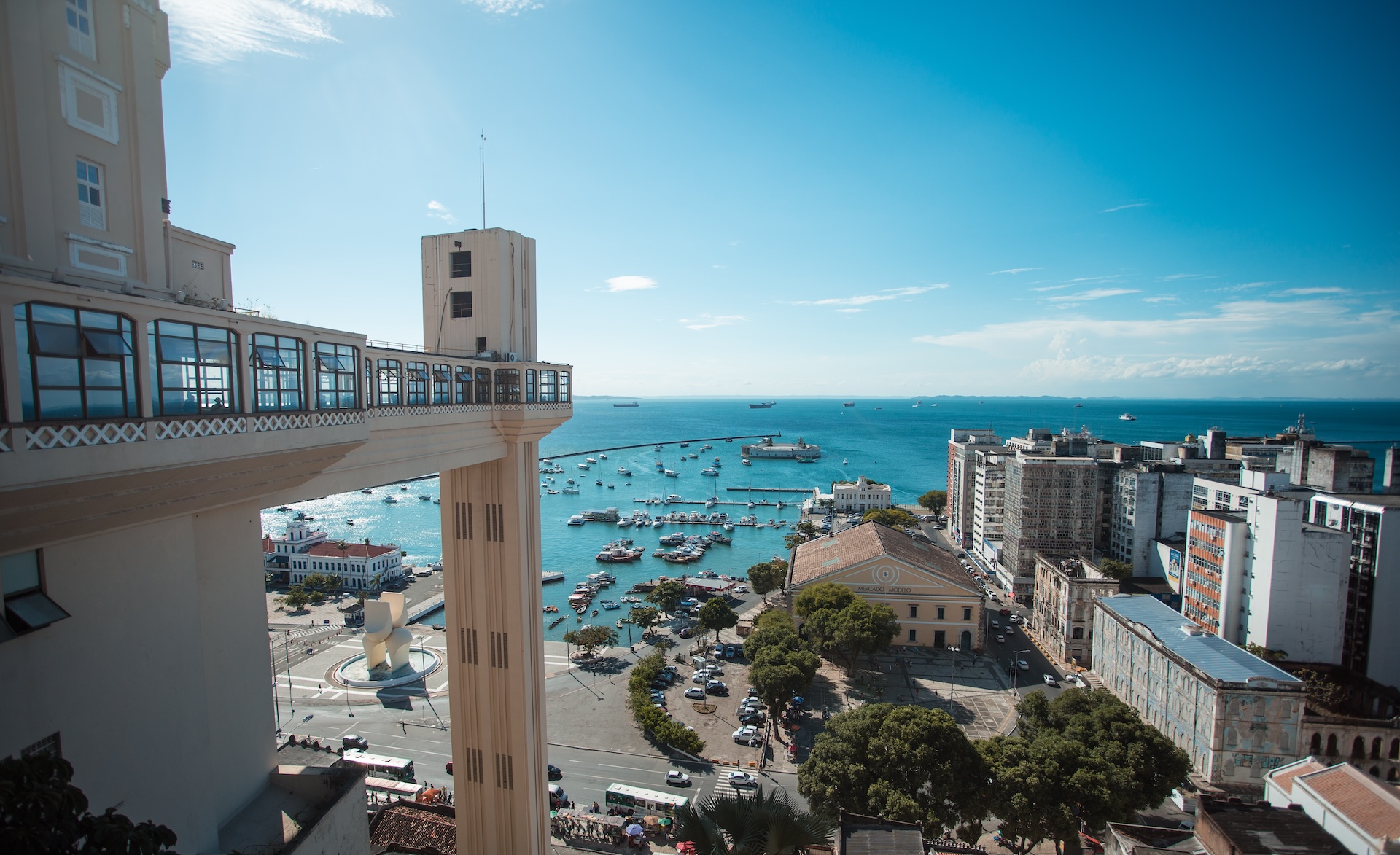Salvador - BA
Basic information
- Population: 2.417.678 of people
- GDP per capita: R$ 20.417,14
- Human Development Index (IDHM): 0,759
- Source: IBGE
Salvador is the capital of the state of Bahia, in northeastern Brazil. Anyone born in Bahia is a Bahian. Those born in the city of Salvador are soteropolitano (soteropolitans). Founded in the 16th century, Salvador is a historic city and was Brazil's first capital. Its cultural relevance is highlighted by Afro-Brazilian festivals, such as Carnival, and the preservation of its heritage, making it an epicenter of national identity. Salvador will host G20 meetings in Brazil in 2024.

Presentation
Salvador has a territorial area of 693.442 km2. The capital of Bahia has a deep history, a diversified economy, a rich culture, a vibrant people, an irresistible gastronomy and a tourist importance that make it a unique destination.
Founded in 1549 by the Portuguese, Salvador was the first capital of colonial Brazil. The Pelourinho, with its cobbled streets and colorful mansions, it’s a proof of this heritage. The historic center is home to the Lacerda Elevator, which connects the Upper and Lower Towns, and the Bonfim Church, a symbol of devotion and faith.
Salvador's economy is diversified, going beyond tourism. Sectors such as commerce, services and industry contribute to its development. The Salvador’s Harbor, which is strategic for maritime trade, drives economic activity. The city also stands out in sectors such as technology and education.
The culture of Bahia's capital is a celebration of diversity, influenced by African and European heritage. Candomblé and capoeira are remarkable cultural expressions. Carnival, one of the biggest festivals in the world, is an explosion of music, dance and color, involving locals and visitors in a unique atmosphere.
The Bahian people are known for their hospitality and joy. The expression "axé", which means positive energy, reflects the essence of the local people. Religiosity is an intrinsic part of Bahian identity, manifested in celebrations such as the Lavagem do Bonfim and the Iemanjá festivities.
Salvador's gastronomy is a delight for the palate. Acarajé, abará, moqueca and vatapá are culinary treasures, revealing the fusion of African and indigenous flavors. The Mercado Modelo is a gastronomic paradise where aromas and colors mingle, providing a unique experience.
The the city is also one of Brazil's key tourist hubs. Its beaches, such as the famous Farol da Barra beach, and cultural circuits, such as Pelourinho, attract visitors from all over the world. Carnival, with its blocos and trios elétricos, is a global festival that puts the city in the spotlight. Religiosity also attracts pilgrims, especially during the Senhor do Bonfim festivities.
Salvador is more than a city. It is an experience, a journey through time that unites past and present in a warm embrace. Its rich history, varied economy, vibrant culture, welcoming population, irresistible cuisine and crucial role in tourism make it a preciosity of the Brazilian Northeast and an essential part of the country's memory.
Main tourist attractions
• Pelourinho
• Elevador Lacerda (Lacerda Elevator)
• Farol da Barra (Barra Lighthouse)
• Mercado Modelo (Market Gallery)
• Bonfim Church
• Porto da Barra Beach
• Itapuã Beach and Lighthouse
• Church of San Francisco
• Bahia Carnival House
24 HOURS IN SALVADOR
MORNING
Explore the beaches! Salvador has stunning beaches such as Porto da Barra, Praia do Farol da Barra, Praia de Itupã and Praia do Flamengo. Enjoy the sun, the calm sea and the breathtaking scenery.
LUNCH
Bahian cuisine carries the history of its people. Typical dishes such as acarajé, moqueca, vatapá and caruru are a must-eat. You can find these delicacies in local restaurants, street stalls and markets. The Feira de São Joaquim (St. Joaquim’s Fair) brings local culture to life and is Salvador's largest market, a real labyrinth of colors, smells and flavors.
AFTERNOON
The historic center - Pelourinho - is the heart of the city, with its cobbled streets, colorful colonial houses and baroque churches. Explore the craft stores, try the local cuisine in traditional restaurants and immerse yourself in the vibrant atmosphere of this area. Other must-sees are the Cidade da Música Museum, the Baianas de Acarajé Museum, the History house and the Gastronomy Museum.
LATE AFTERNOON
Watch the sunset from Farol da Barra, one of the most beautiful spots in Salvador, with a remarkable view. The sea waters are clear and warm even in winter, as well as having a rich fauna and flora, with beautiful coral reefs that serve as a backdrop for experienced divers and beginners alike.
NIGHT
Rio Vermelho (red river) is the city's bohemian neighborhood. The place has bars of all styles, with varied menus that offer everything from snacks to dinners of the highest Brazilian cuisine, of course, with lots of good music. The bars and nightclubs in the area always have an excellent program.
SÃO JOÃO DO NORDESTE
In Brazil, the month of June is marked by festivals celebrating some of the country's main June saints, such as St. Anthony, St. Peter, St. John and St. Paul. For those who want to experience a typical June festival, there is a program of festivities in the main cities of the Northeast that take place in the second half of the month. The event has characteristic decorations, delicious typical food and lively quadrilhas, a traditional dance of the June festivities. You can also dance a lot of forró, a popular dance typical of the Northeast, and eat various dishes made from corn, such as pamonha and canjica.
Airport
Salvador International Airport - Deputado Luís Eduardo Magalhães stands out for its modern infrastructure, facilitating the passenger experience. It has ample commercial areas, efficient security control and global connections. This provides a welcoming entrance for visitors that arrive in the Bahian capital.
Sites
Government of the State of Bahia
https://www.salvadordabahia.com/
G20 events in Salvador
Click here to see the full calendar